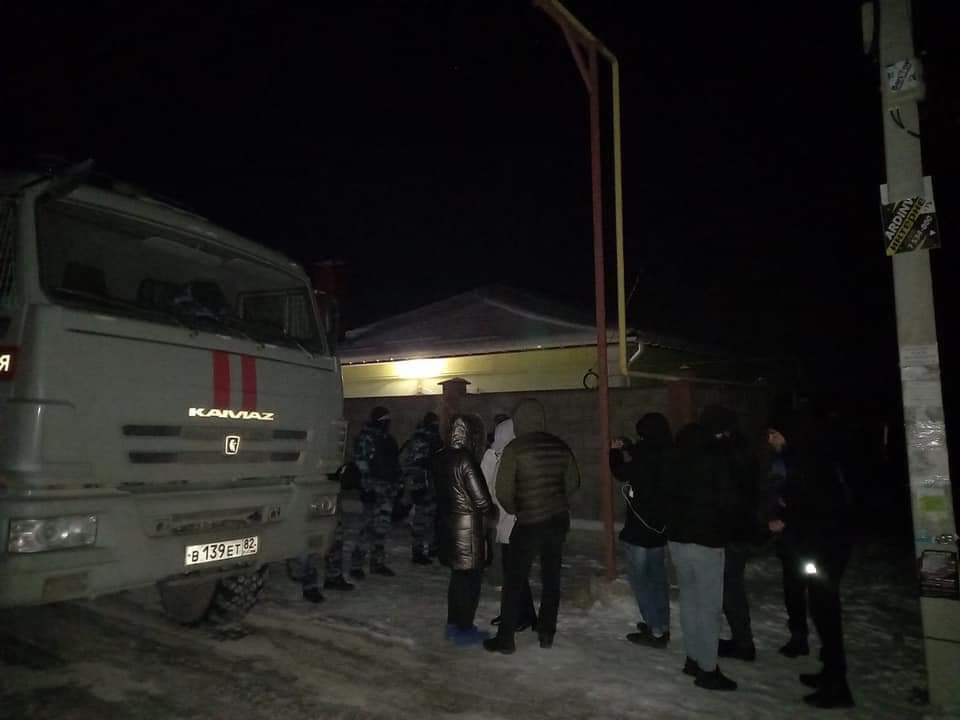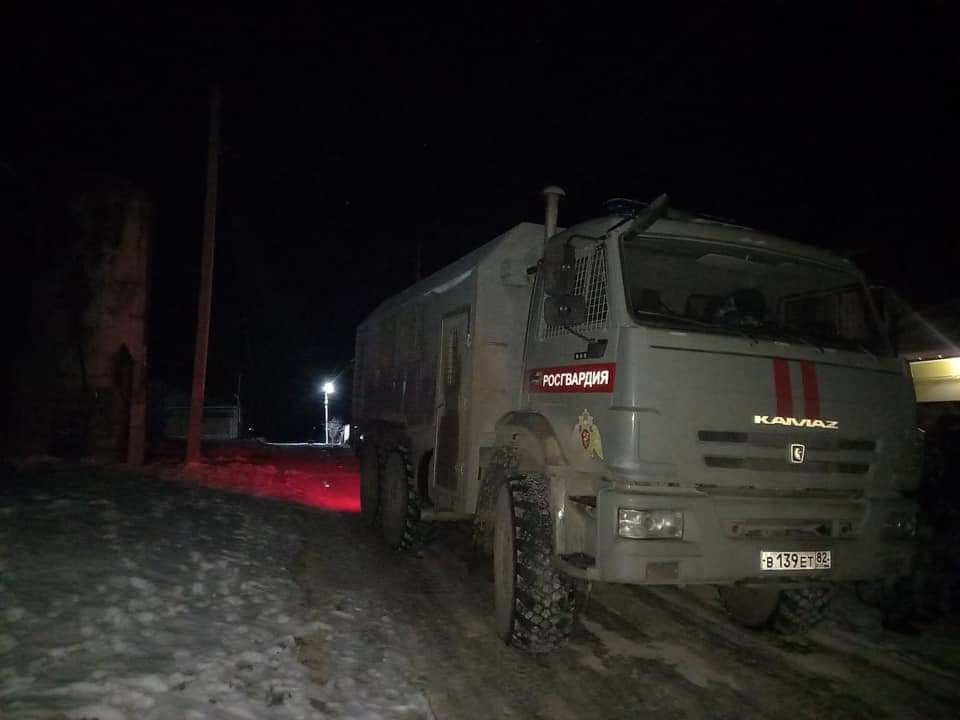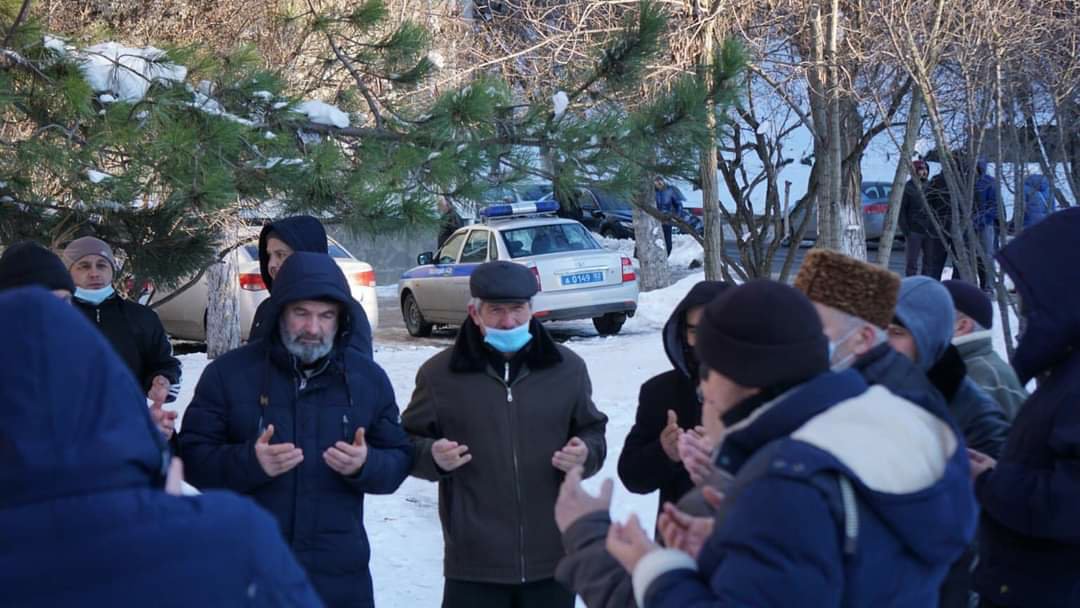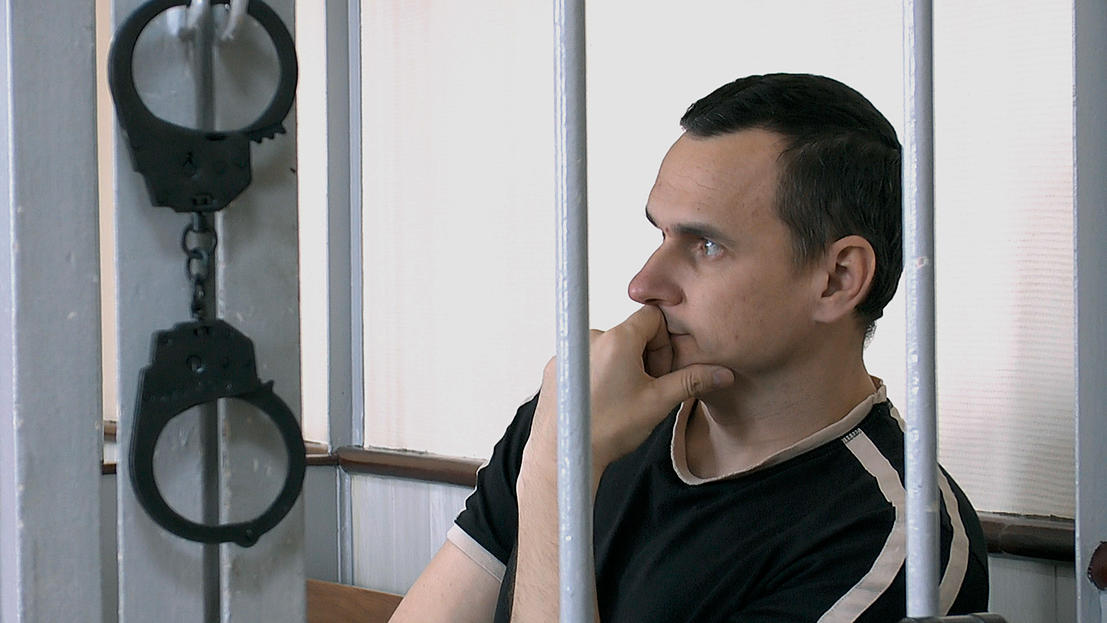During the search. Photos: Crimean Solidarity
Six Crimean Tatars arrested in raids committed by Russian law enforcement in various regions of Crimea have been arrested for two months in pretrial detention the district courts of occupied Simferopol and Sevastopol.
While the raids were ongoing, Russian media reported on a string of operations in Russian regions and occupied Crimea against members of Takfir wal-Hidjra who planned terrorist attacks in the North Caucasus. A video produced by the FSB appears to show Russian special services bursting into homes, including apartment houses, and obtaining weapons and explosives.
Russian journalist Anton Naumlyuk writes that when it was clear that the men arrested in Crimea would not "pass" as terrorists, the FSB released information through local Crimean media that those arrested in Crimea are actually suspected of participation in Hizb ut-Tahrir.
This Islamic organization, which has the establishment of a Khalifate in traditionally Islamic countries (these do not include Russia or occupied Crimea) as its goal but rejects violent means, instead focusing on education.
The organization is legal in most of the world and Hizb ut-Tahrir members have never been linked to terrorist strikes, though qualms exist that extreme forms of Islamist ideologies can lay the foundation for them.
Hizb ut-Tahrir and its members are not listed in the sanctions list of the UNSC established by its 1999, 2011, and 2015 resolutions, targeting organizations and individuals related to ISIS and Al-Qaeda.
Hizb ut-Tahrir is also legal in Ukraine, but was criminalized without proof by Russia's Supreme Court in 2003. Since then, imputed membership in Hizb ut-Tahrir has been equated with terrorism in Russia.
Russia's authoritative Memorial human rights center has protested the 2003 decision and deems all persons accused solely of Hizb ut-Tahrir membership as political prisoners.
In violation of the Geneva Conventions, Russia has extended its criminal law to occupied Crimea. This makes persecution of Crimean Tatars over alleged Hizb ut-Tahrir membership a violation of international law.
Although many Crimean Tatars were openly supportive of Hizb ut-Tahrir before the occupation of Crimea, others denied involvement, alleging that the Russian security services fabricate "proof" of involvement in Hizb ut-Tahrir.
The cases of the men arrested on 17 February will be adjoined to the existing cases of alleged Hizb ut-Tahrir cells in Crimea.
Yashar Shykhametov, who was arrested in Sevastopol, claimed in court that the three Hizb ut-Tahrir brochures the FSB "obtained" from a closet during the search in his house were planted there by the security services themselves, his lawyer stated. Shykhametov says a practicing Muslim would never store religious literature in a closet.
He plans to file a crime statement with the military investigative committee about law enforcement officials planting evidence during a search.
"There are no other reasons for my detention other than that I am a Crimean Tatar and a practicing Muslim," Shykhametov stated in court.
"Retribution for activism" and "demonization of Crimean Tatars"
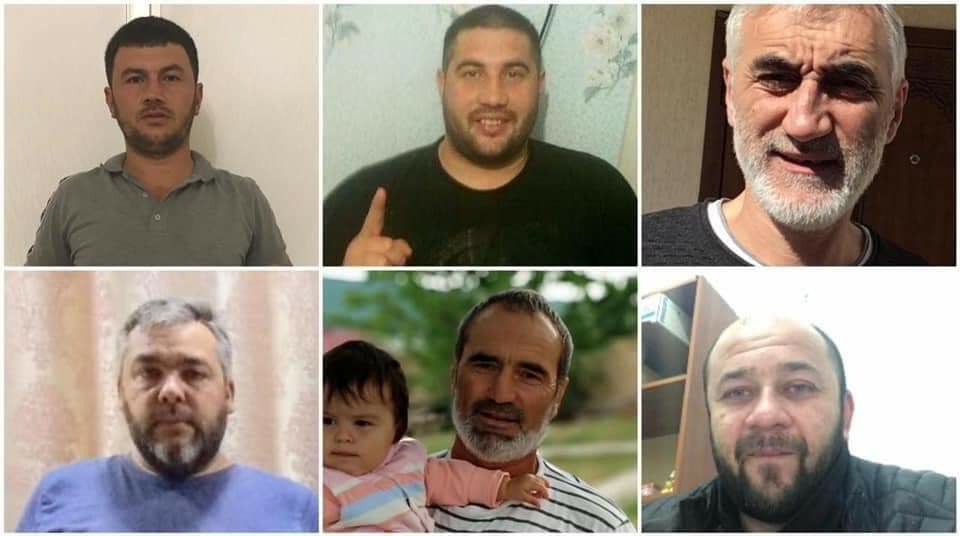
The searches of 17 February are, in the words of Mumine Salieva, the wife of Seiran Saliev, a Crimean Tatar sentenced to 16 years for alleged involvement in Hizb ut-Tahrir, retribution for activism and a peaceful protest against repressions.
Crimean Tatar human rights activist Luftiye Zudiyeva called the FSB's messaging about the purported operation against Takfir wal-Hidjra while raids were carried out against Crimean Tatars a "hybrid information operation dircted at intimidating the population of Crimea and demonization of Crimean Tatars":
"By mixing information flows about various detentions on the territory of Russia and in Crimea, the reliability and legitimacy of which we reasonably doubt, they want to frighten people with Islamic terrorism, which has never happened in Crimea," Ms. Zudiyeva wrote.

Azamat Eyupov (58 years old) participated in the protest action of Crimean Tatars against repressions on Moscow's Red Square in July 2019. Then, many Crimean Tatars stood with signs "Our children are not terrorists." 50 were detained by police. Eiupov is a father to four children, including a disabled daughter.
"His position is as follows: he says that he considers the persecution against him to be politically motivated, he does not admit his guilt, he demanded the application of the Fourth Geneva Convention as a citizen of Ukraine," his lawyer Emil Kurbedinov said.
Lenur Seidametov, a father to three children, helped with purchasing and packing food parcels for Crimean Tatars held in pre-trial detention center on politically motivated accusations.

Oleg Fedorov, an entrepreneur from Bakhchysarai who provided financial support to the families of political prisoners and was a local organizer of iftars, the evening partaking of food during the fast of Ramadan. He attended court hearings of politically motivated cases, participated in information campaigns and flashmobs in support of Crimean Tatar political prisoners.

Ernest Ibragimov, a father of four children, is an activist of Crimean Solidarity and Crimean Childhood, a project for children of political prisoners. He attended court cases against Crimean Tatar activists and searches of their houses відвідував, organized the sending of parcels to prisoners.
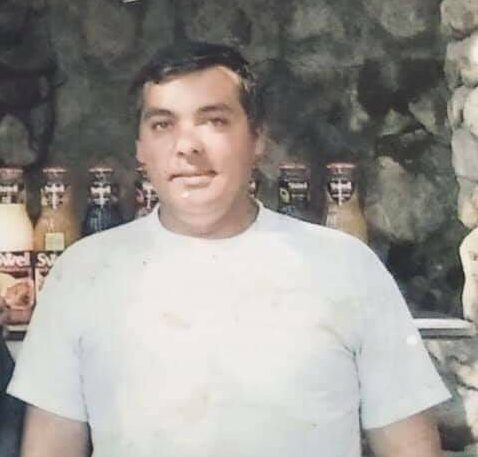
Yashar Shykhametov testified as a defense witness in court for Enver Seitosmanov, a Crimean Tatar imprisoned on politically motivated grounds. He transported children of political prisoners to children's events, and women to the meetings of Crimean Solidarity. Shykhametov is a father of two children.
Tymur Yalkabov attended searches of homes of Crimean Tatars and court hearings of politically motivated. Yalkabov is the father of five children.
The Prosecutor's Office of the Autonomous Republic of Crimea, located in mainland Ukraine has reported it will open criminal proceedings due to the morning searches of Russian security officials in the houses of Crimean Muslims.
The standard pattern for arrests of Crimean Tatars
At least 300 Crimean Tatars gathered near the Kyiv district court in occupied Simferopol, where the fate of five detained men was being decided on 17 February. Photos: Crimean Solidarity
Crimean Tatars, who once made up the ethnic majority in Crimea but were driven out of the peninsula in a series of deportations by Russia, the latest of which came about in 1944, opposed the occupation of their native homeland. Since Russia's landgrab, committed in the wake of Ukraine's Euromaidan revolution, they have been disproportionately targeted by the Russian security forces.
The standard pattern for arrests is the following:
- Russian security forces raid homes of Crimean Tatars before dawn;
- In a search where the witnesses are brought in by the security forces, "forbidden" Islamic literature is found in the homes, either in print or on digital means. The accused allege that it was planted during the search, which can be evidenced by fingerprint analysis;
- Men are accused of terrorism under article 205.5 of Russia's Criminal Code and taken away to pretrial detention centers;
- The trial takes place in the military court of Russia's Rostov-on-Don. In a fabricated trial, "secret witnesses" are used to allege that the accused are members of Hizb ut-Tahrir. Secret recordings of conversations of the accused are analyzed by experts with dubious credentials to extract incriminating conclusions; these conclusions are disproved by independent experts;
- Despite there being no plans or conversations of committing terrorist acts, an absence of weapons or explosives, the men are sentenced to up to 20 years in jail for either "organizing" or "participating" in a Hizb ut-Tahrir cell.
Crimean Tatars currently make up roughly 3/4 of the list of roughtly 100 Ukrainian political prisoners of the Kremlin. Coming from traditionally large families, the string of jailings has left behind scores of fatherless children. The arrest of six men on 17 February has left 15 children without fathers; they join the 177 children whose childhood has been stolen from them, in the words of the civic initiative Crimean Childhood.
Read also:
- Ukraine’s evidence in ECtHR: proof of Russia’s occupation of Crimea, human rights violations
- ‘Crimean Tatar tragedy of 1944 being repeated’ and with more damaging effect, Dzhemilev says
- Crimean Tatars in the crosshairs of Russia’s war on Muslims
- Words of freedom: why you should send a letter to a political prisoner of the Kremlin




